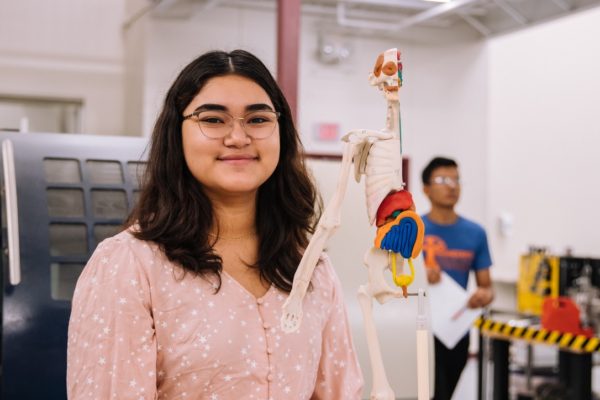Introduction
Hopefully your kids and household have regained footing since the 2-3 year period of COVID (at least the worst of it). Students of all ages experienced little normalcy during COVID, and possibly are still dealing with lingering impacts, so I want to recognize that every parent needs to start where their teen is in terms of their child’s mental health, academic progress, and motivation.
The last thing your high school sophomore or freshman might want to think about is going off to college, but the good news is there really are no must do’s for the college admissions process during the underclass years of high school.

The most important thing your freshman or sophomore needs to do to prepare for college is simply be the best high school student they can be.
In fact, at this point parents arguably have more work to do than students do to help prepare for the college admissions process. That list is last, below.
Most Important Factors in College Admissions
According to this College Data article “What do Colleges Look for in Students?”, these are the most important factors in college admissions’ decisions:
1- grades in college prep courses
2- strength of curriculum
3- admission test scores
4- grades in all courses
And these are the next most important factors:
5- extracurricular commitment
6- letters of recommendation
7- essay or writing sample
8- demonstrated interest
9- class rank**
10- personal qualities

**Class rank is a fading metric among both high schools who provide it, and colleges who request it.
9th and 10th grade years are an important time to lay a strong foundation for most of these factors, but without a sledgehammer approach. Here are some areas to think about:
Conversations
Hopefully you noted and adjusted to new ways to communicate with your teenager once the elementary years passed. Discussing current events, watching the news together, hearing about what is happening in school with more detail than “it’s ok” are all opportunities to demonstrate that you value their voice and budding independence.
I wrote a three part series early this year on Conversations more specific to the college admissions process. Part 1, HERE, covers important conversations that should start early in high school. Parts 2 and 3 are linked in Part 1 and cover topics that can generally be covered later in sophomore year or early junior year, but your mileage may vary and I encourage you to check them out for ideas.

The college admissions process is rife with emotions and stress, and as difficult as it can be to wean time away from your teen’s activities, academics, and devices, it’s more important than ever to be a consistent presence- voice, as well as ears to listen- and set aside time intentionally to have regular conversations with your teen.
Organization
Individuals have different organizational set points, or comfort levels. We see that as adults with significant others and co-workers, as well as in families with multiple children.
High school underclassmen, and 9th graders in particular, are usually drilled with the importance of organization to not only survive, but thrive in high school, and some teachers may require very specific notebooks, folders, and formats for classwork and assignments. Other teachers may emphasize the importance of organization but leave it to the student to figure out how to best stay organized; in other words, more like the experience your teen will have in a college setting.
The most important thing a parent can do is talk through the work and expectations for each class with your teen, and let your teen commit to and be accountable for the way they organize their work. Then monitor, or better, let your teen assess every few weeks how things are going and explain what organizational tools seem to work for them, and what do not.
Grades and Classes
High school underclassmen heading to college should set a high bar (A’s and B’s) for grades, and seek to take at least one challenging class each semester. As my kids’ high school dean once told me, it’s much easier to move from an AP class to a regular class than the other way around.
Take a look at your student’s current schedule, as well as the proposed schedule for the following semester, and if necessary, encourage your teen to stretch to a more difficult class in the upcoming semester, particularly if it is in a favorite subject area.

I think it’s perfectly reasonable and appropriate to broach the subject of college during freshman year, and certainly by sophomore year. Most teens, and I speak from experience, don’t think much beyond next week, but planting the seeds to envision a future after high school without pushing for perfection might motivate some kids to focus more and be more willing to stretch academically in their underclass years.
Extracurriculars
Encourage your teen to choose at least one extracurricular activity. It’s fine to try several, but colleges look more for significant contributions in 1-2 activities than basic membership in a large number of groups. Engagement and contribution are key measures for college admissions, and this is one area where students can start early.
High school usually provides an incredible array of extracurricular choices, in addition to activities or work outside of school, but parents might need to guide (o.k., pull out the cattle prod) for more reluctant or introverted kids. Focus on engagement, positive contribution, and finding their people.
Relationships
Few things are more important in life and become predictors of success than choosing the people you hang out with wisely. Meaning, continue discussions that hopefully started years ago about the importance of picking your friends carefully, with emphasis on seeking individuals and groups which lift up others, not tear down, and otherwise make positive contributions to the school or community.

High school is a great time to reset friend groups and activities, and to meet new people if middle school was a challenging time socially, as it was for two of my kids.
Also encourage your teen to interact in positive ways with adults by striking up conversations with their teachers at appropriate times, and being polite and conversational with everyone they come in contact with. As a devout introvert I know this can be challenging, but ultimately teens need to learn how to appropriately self-advocate, and will eventually need to ask teachers or staff members for letters of recommendation, if not for college, then for a job. Plant the seeds early to build the skill and habit.



What Parents Can Do
Some important ways parents can start preparing their underclass high school students for college, and the college admissions process specifically, are mentioned above: regular conversations with depth, setting expectations for organization, encouraging at least one academically challenging class and one extracurricular activity each semester, plus building positive relationships with both peers and adults.
Here are a few more ways parents can help their 9th or 10th graders behind the scenes:
- attend parent-teacher night and other school meetings to be engaged without hovering
- know what classes your teen is taking and understand how they fit into graduation requirements
- set expectations and boundaries for phone use, family time, grades, and being a good citizen
- encourage your child to read regularly and widely, including digital articles, but also non-fiction and fiction books, a newspaper, and other periodicals
- become familiar with school resources for the college admissions process, plus resources to improve study skills, test-taking skills, and other areas your teen may need soon, or later in high school
- ensure both parents, if applicable, are subscribed to the school email list for daily or periodic news and information specific to your child’s grade level if available
- practice and model self-awareness and self-advocacy, two very important skills for teens to learn before they go off to college
- encourage strong positive habits in the areas of health (exercise, nutrition, sleep, screen time), study skills, and cleaning up after oneself
- teach and encourage life skills through regular chores and teaching/experience in basic home and car maintenance, personal finance, first aid and illness care, and laundry
- on a family road trip or even a local day trip take time to drive through a college campus and begin the conversation about attending college
For more suggestions, check out the timelines for 9th and 10th grades HERE.
As much as most of us want to take off the “parent pack” and enjoy our kid’s greater independence, even teens that seem to have it all together continue to need guidance, ultimately leading to moving out of the home for college. Your teen’s ability, with parent help, to establish a strong foundation academically, socially, and by being positively engaged during their underclass years, will create a smoother runway for the college admissions process to come.
